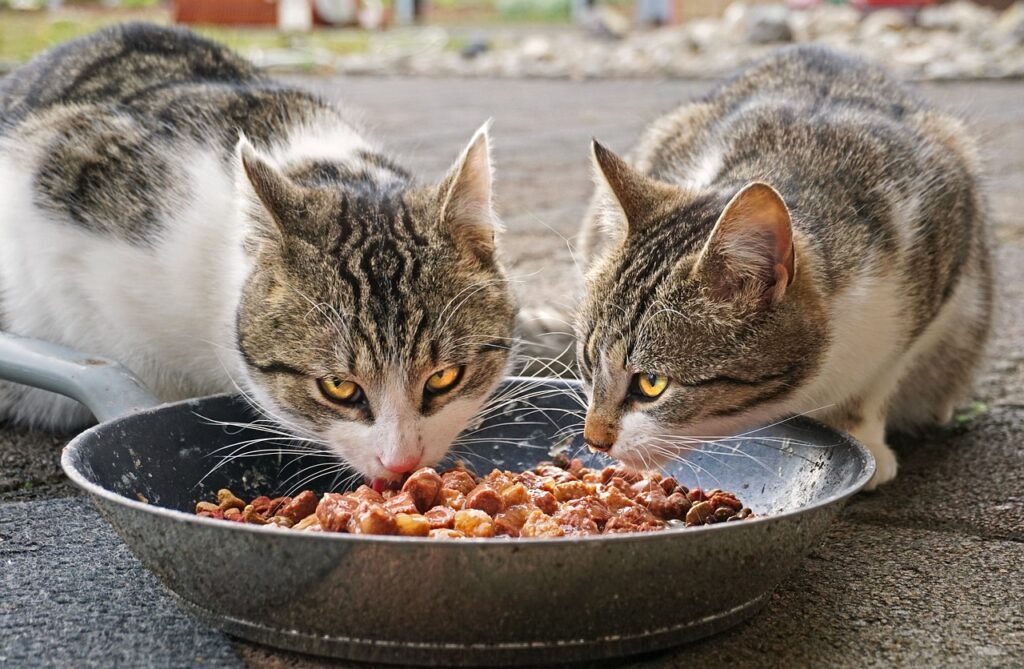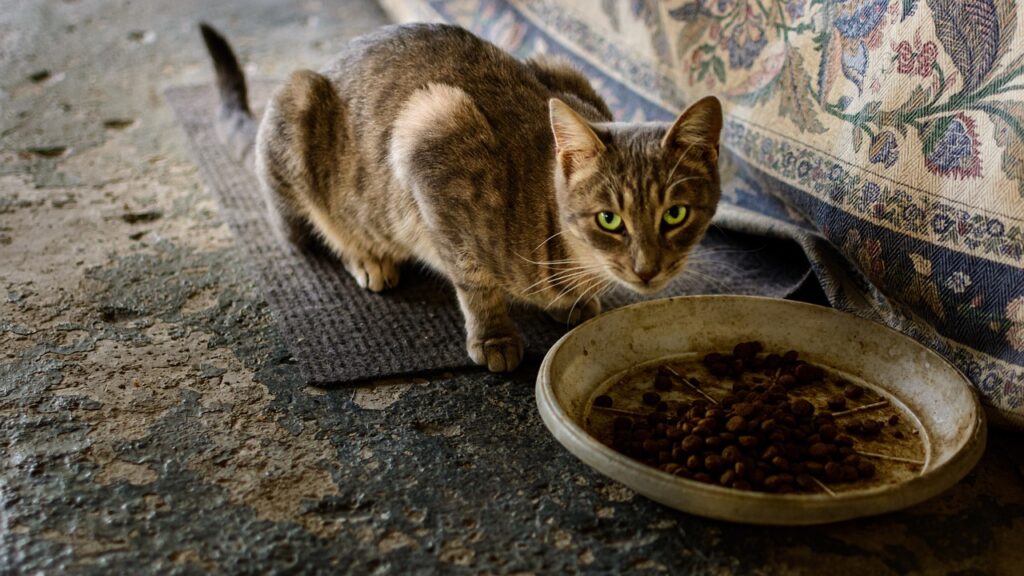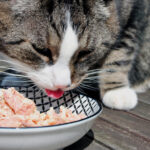Nourishing your feline companion involves more than just filling their bowl. Understanding their dietary needs ensures they receive the essential nutrients for a healthy, happy life. Let’s delve into the world of cat food, exploring various options and the crucial role nutrition plays in your cat’s well-being.

Understanding Your Cat’s Nutritional Needs:
Cats are obligate carnivores, meaning their bodies require animal protein for survival. This protein is essential for building and maintaining muscle, developing a healthy coat, and supporting their immune system. Additionally, they need specific vitamins and minerals for optimal health.
Navigating the Food Aisle
Your local pet store offers a vast array of cat food options, each with its own advantages and considerations:
- Dry Food (Kibble): Convenient and budget-friendly, kibble provides a source of fiber and helps maintain dental health through chewing. Look for brands with high-quality protein sources listed as the first few ingredients. Prices range from $10-$50 per 10lbs bag depending on brand and quality.
- Wet Food (Canned food): Generally higher in moisture content, which is crucial for hydration, especially in cats who don’t drink much water. Wet food often appeals to cats with finicky palates. Prices start around $1 per can and can go up depending on brand and ingredients.
- Raw Food: Mimicking a cat’s natural diet, raw food typically consists of uncooked meat, bones, organs, and some vegetables. This option requires careful research and preparation to ensure a balanced diet and prevent bacterial contamination. Costs can vary greatly depending on the source and ingredients, but expect to pay $3-$10 per pound.
DIY Cat Food
While enticing, preparing homemade cat food requires extensive research and consultation with a veterinarian to ensure it meets all your cat’s nutritional needs. Improperly formulated diets can lead to deficiencies and health issues.
Nutritional Benefits and How They Help Your Cat
- Protein: Crucial for building and maintaining muscle mass, supporting a healthy coat, and promoting a strong immune system.
- Taurine: An essential amino acid that supports healthy vision, heart function, and digestion.
- Fatty Acids: Omega-3 and omega-6 fatty acids contribute to healthy skin and coat, cognitive function, and joint health.
- Vitamins and Minerals: Essential for various bodily functions, including bone development, energy production, and nervous system health.
Choosing the Right Food for Your Cat:

Several factors influence which food is best for your feline friend:
- Age: Kittens need a higher calorie diet than adult cats, while senior cats may benefit from food formulated for their specific needs.
- Health Conditions: Cats with specific health conditions, like allergies or kidney disease, may require specialized diets.
- Activity Level: Highly active cats might need more calories than their low-activity counterparts.
Always consult your veterinarian when choosing a new food for your cat, especially if they have any underlying health concerns. They can guide you based on your cat’s individual needs and recommend specific brands or formulations.
Remember: Food is fuel for your cat’s amazing adventures. By understanding their nutritional needs and making informed choices, you can ensure they have the energy, strength, and overall well-being to thrive and live their best feline lives.tunesharemore_vert




Pingback: All You Need to Know About Chemotherapy for Cat Lymphoma - Catlives
Pingback: How To Feed A Cat With Lymphoma - Catlives